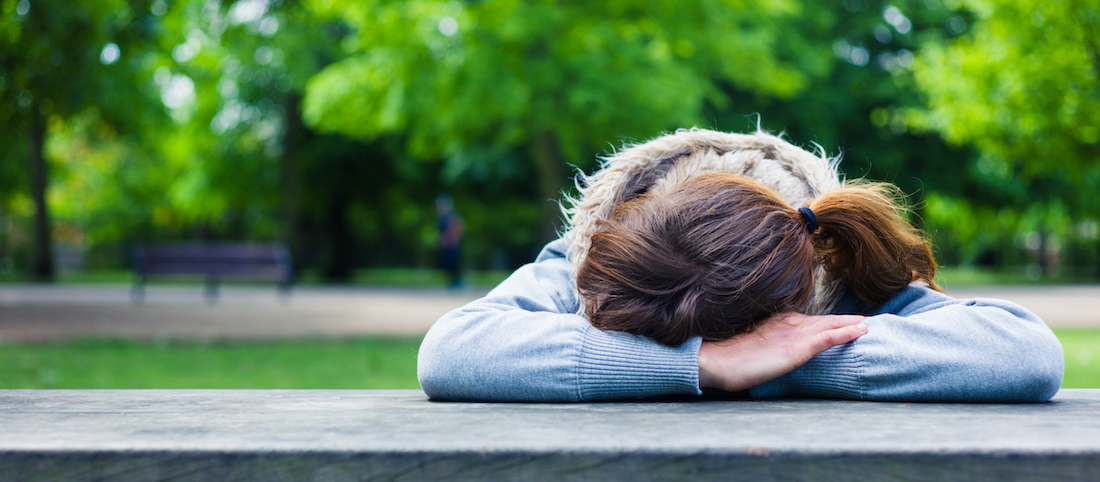
“I’m tired of being tired!” That is the single most common complaint I hear after two decades and thousands of massages.
Nobody ever seems to hit the snooze button, it’s no wonder why so many of us are feeling like we could use a nap…all the time! The hustle and bustle of life, coupled with screens that glow into the wee hours, has left us with a yawn-inducing dilemma: fatigue.
There is a way out of it. You can improve your energy levels and stop being tired of being tired.
A combination of factors is playing tag with our energy levels:
- Lack of quality sleep
- Stress from work, kids, and money
- High inflammation nutrition profile
- Chronic dehydration
The list goes on and on…
Our bodies are forced into waging an ongoing battle against inflammation like it’s going out of style, and those late-night Netflix marathons aren’t exactly winning us any sleep awards.
The good news? There is a way out of feeling tired.
There are several effective strategies you can incorporate into your daily routine to combat fatigue and regain your energy. From small lifestyle changes to mindful practices, here are 8 proven ways to help you feel less tired and more revitalized.
Stop being tired of being tired!
- Prioritize Quality Sleep: The foundation of energy lies in a good night’s sleep. Aim for 7-9 hours of restful sleep each night. Create a sleep-conducive environment by keeping your bedroom dark, quiet, and at a comfortable temperature.
Speaking of temperature…
The optimal temperature for a good night’s sleep falls between 60 to 67 degrees Fahrenheit. This range allows your body to cool down, which is essential for initiating and maintaining deep sleep.
When your core body temperature drops, it signals your body that it’s time to rest. A cooler sleeping environment also promotes better airflow and prevents overheating, which can disrupt your sleep cycle. Ultimately, finding the right temperature for you may require some personal adjustment, but aiming for this range can greatly enhance the quality of your sleep, leaving you feeling refreshed and energized in the morning. - Stay Hydrated: Almost everyone I see is chronically dehydrated that can make you feel weak and fatigued. Just being hydrated can have a huge impact on how you feel.
- Your Diet: This is a big one. It is almost too much to include in a list because I could write a book about it’s effects on sleep. (Many others have!)
You need a great nutrition profile and you need to reduce the amount of high inflammation foods. The wheat really has to go. Instead of 1,000 words on how to improve your diet, start here: For the next 4 weeks, get rid of wheat, extra sugar, and seed oil, and see how you feel. I’ll bet you the cost of a massage that you feel like a new person. - Regular Physical Activity: Even small amounts of physical exercise, such as taking a leisurely walk, can have a positive impact on sleep quality.
Physical activity helps regulate the body’s internal clock and sleep-wake cycle – your circadian rhythm. Going for a walk, especially during daylight hours, exposes you to natural light, which helps synchronize your body’s biological clock and promotes better sleep at night.
Additionally, exercise releases endorphins, which can reduce stress and anxiety, common culprits of sleep disturbances. While vigorous workouts might energize you, moderate activities like walking can facilitate a smoother transition to a relaxed state in the evening, making it easier to fall asleep and stay asleep throughout the night.
That is, don’t do a HIIT workout in the evening. It’ll keep your body energized for hours. Do the high intensity stuff earlier in the day and by night time, you’ll be ready to crash. - Break Up Sedentary Time: Prolonged sitting can lead to sluggishness. Take short breaks to stretch, walk around, or perform simple exercises to keep your body and mind alert.
- Practice Stress Management: Chronic stress can drain your energy. Incorporate stress-relief techniques such as meditation, deep breathing, mindfulness, or engaging in hobbies you love.
- Limit Caffeine and Sugar: While a cup of coffee or tea can provide a temporary energy kick, relying on caffeine and sugary snacks can lead to crashes later on. Consume them in moderation and opt for healthier alternatives.
Caffeine has a half life around 5 hours. That means if you have your last cup of coffee at 2:00pm, at midnight you still have about 25% of that caffeine circulating in your blood stream. No wonder you can’t sleep!
Get your caffeine in the morning and keep it reasonable. If you stop after two cups by 9ish, you’ll be good to go. And for goodness sake don’t hammer down a bunch of soda in the afternoon. - Get a Massage!: Okay this one is admittedly a bit self serving. But it’s true. Massage therapy has shown promising potential in mitigating chronic inflammation within the body.
Through its various techniques, massage can stimulate the relaxation response and reduce the production of stress hormones, which are known contributors to inflammation.
By promoting improved circulation and lymphatic drainage, massage helps the body remove waste products and toxins, aiding in the reduction of inflammation.
Moreover, targeted massage on specific muscle groups or affected areas can alleviate muscular tension and discomfort associated with chronic inflammation-related conditions.
Regular massage sessions have been linked to lowered levels of inflammatory markers in clinical studies, suggesting that massage therapy could be a valuable complementary approach in managing chronic inflammation and improving overall well-being.


 spartaworks
spartaworks  August 1, 2023
August 1, 2023